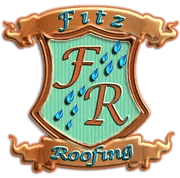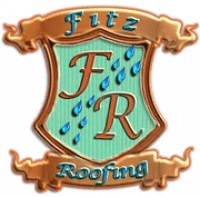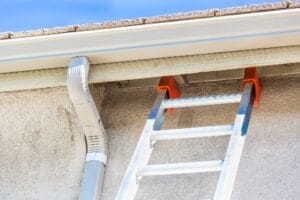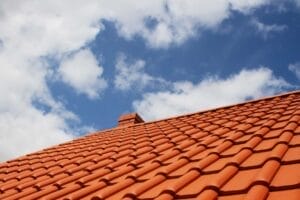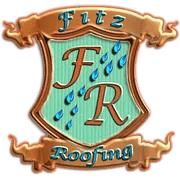Hurricane season in the United States ranges from June 1st until November 30th of each year. Although a hurricane can happen at any time during this period, they’re most likely to strike Texas in August or September.
Hurricanes can bring significant storm damage to your home and property. One of the things most impacted by these severe storms is your roof.
But how do hurricanes affect your roof? What can be done to minimize roof storm damage? Continue reading to learn everything you need to know.
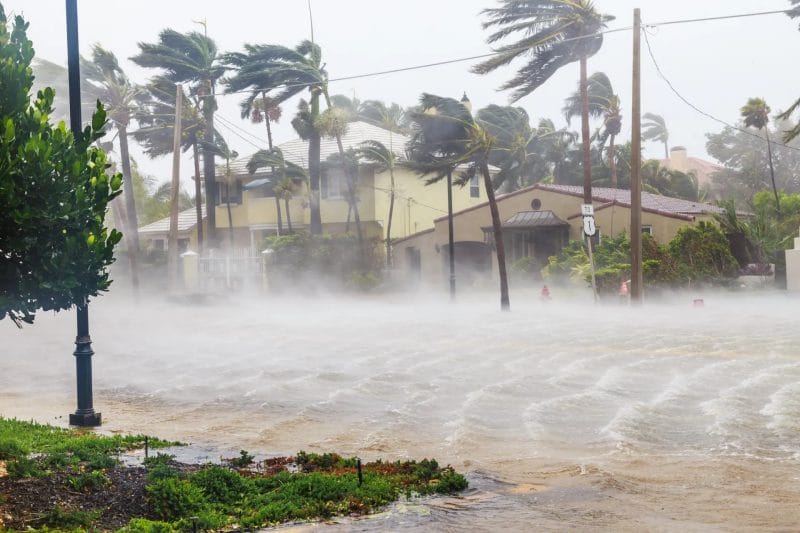
Weather Elements That Can Occur During a Hurricane
Hurricanes are a natural weather phenomenon that can strike any area in the United States. Typically, the eastern portion of the U.S. is more prone to hurricanes, as are coastal areas. This doesn’t mean a hurricane, or the remnants of one, can’t cause damage elsewhere.
Many severe weather elements can occur during a hurricane. Since hurricanes are unpredictable, there are only two elements you can count on happening during one – high winds and rain. It’s also possible for lightning strikes and hail to occur.
Any of these elements have the potential to cause significant damage to your roof on their own. When these harsh weather elements work together, like in a hurricane, the damage tends to be worse. Damage inflicted by high winds, for example, can worsen tenfold when exposed to heavy rains.
How High Winds Affect Your Roof
Hurricanes are classified as having sustained winds of at least 74 miles per hour. Anything weaker is classified as a tropical storm. Wind gusts during even a category one hurricane could, at times, reach 150 miles per hour or more.
These strong winds can directly impact your roof by ripping off shingles, roof tiles, and even the roof deck. Gutters can be pulled from the side of your roof, causing further damage to nearby areas.
High winds can also indirectly affect your roof. Tree limbs, flying objects, and smaller debris can land on your roof. The impact from these foreign objects can cause shingles and tiles to fall away, or even create holes through your roof.
How Heavy Rains Affect Your Roof
Heavy rain can cause excessive wear and tear on your roof. It can loosen shingles and quickly “age” a roof, so it needs replacement sooner than would otherwise be necessary.
The real problem with heavy rain during hurricanes is when the roof has already sustained damage. When an already damaged roof is exposed to heavy rains, the roofing structure can suffer severe water damage. Water can also damage your attic once areas have been exposed to the elements.
How Hail Affects Your Roof
Hail doesn’t occur with all hurricanes, but the risk of it does exist. The problem with hail is that there isn’t much you can do to prevent it from damaging your roof.
Once hail has created holes in your roof, the only thing you can do is repair or replace it. If hail is small and infrequent, it may only loosen shingles or chip away at the outer layers of your roofing structure.
How Lightning Strikes Affect Your Roof
Although the risk of lightning directly striking your roof is slim, there is the possibility that it will happen during a hurricane. Worst case scenario, a lightning strike can cause a fire to erupt. This is incredibly rare, however, no matter what you see in the movies.
What’s most likely to happen when lightning strikes your roof is it’ll puncture a hole through it. This hole can even go directly through the attic flooring and damage your first or second floor. Once a hole has been made, the interior of your home is left open to water damage.
Lightning strikes can also cause burning or searing of roofing elements. An intense lightning strike can tear gutters and shingles off the roof.
Minimizing Storm Damage Due to Hurricanes
No matter what precautions you take, there always exists the possibility your roof will become damaged during a strong storm like a hurricane. The fact that tornadoes can also spawn during these massive wind storms further increases the risk of damage.
A roof in good condition is generally less likely to take severe damage, however. If you live in an area prone to hurricanes or other forms of severe weather, you should have an annual roof inspection done before the season for storms has come.
These roofing inspections should be done by a professional. A roofing contractor will look at your tiles and use specialized equipment to check for weak spots in your roof’s foundation. If anything is found to be wrong, you can use the same contractor to fix your roof.
If damage does occur during a storm, you’ll want to have it taken care of as soon as possible. Left unchecked, even minor damage can turn into a severe problem. A professional roofing expert can help you determine whether your damage can be repaired or whether the roof will need replacement.
Do You Have More Questions About How Hurricane Storm Damage Affects Your Roof?
Hurricanes are severe weather phenomena that can strike anywhere but are more likely to occur in the eastern portion of the United States or coastal regions. Hurricanes bring strong winds, heavy rains, and may include lightning or hail. All of these natural elements combined can mean significant roof damage.
Do you have more questions about how hurricane storm damage affects your roof? Or would you like to schedule a roofing inspection before the hurricane season becomes active?
Contact us today. One of our associates would be happy to answer any questions you still have. They can also schedule you a roof inspection if desired.
